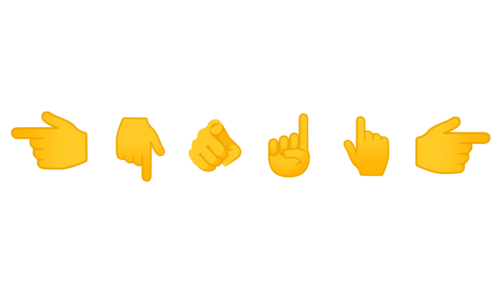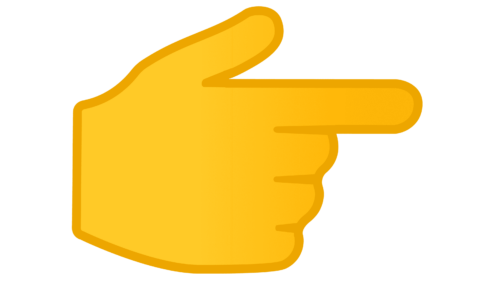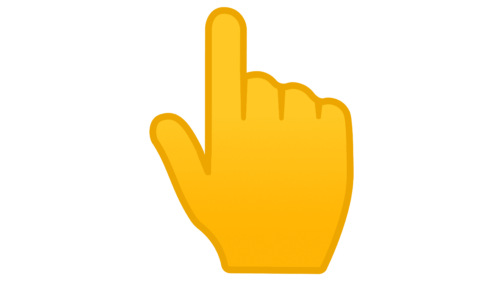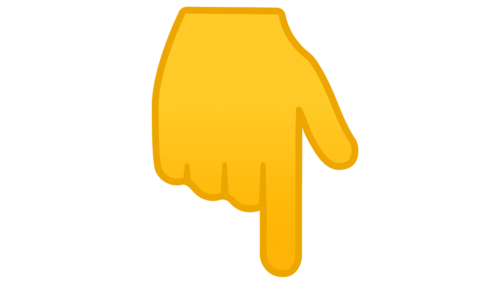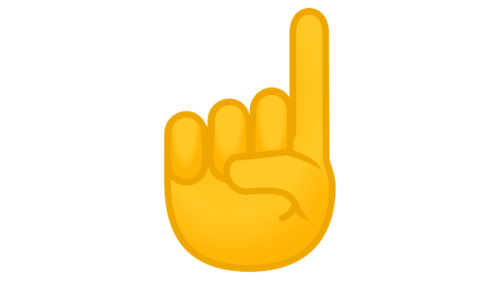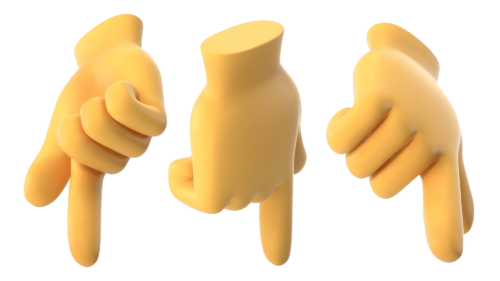👉👆👇☝️👈🫵
It would seem impossible to misinterpret an emoji depicting gestures with just one finger. And yes, for some emoticons this is indeed true. But we should not forget that in some countries and cultures these gestures can have a different meaning. Also, modern online communication does not stand still and even the most innocent emoji can constantly have new meanings. And what to talk about combinations of gestures! Below we will tell you about such a group of emoticons as Point Emoji, and we will understand their meanings and use in more detail.
🫵 The Pointing Finger at You emoticon was assigned the code U+1FAF5, with which it was added to the People and Body section of the Unicode 14.0 standard in 2021.
👉 The Right Pointing Finger emoticon was assigned the code U+1F449, with which it was added to the People and Body section of the Unicode 6.0 standard in 2010.
👈 The Left Pointing Finger emoticon was assigned the code U+1F448, with which it was added to the People and Body section of the Unicode 6.0 standard in 2010.
👆 The Pointing Upward Finger emoticon was assigned the code U+1F446, with which it was added to the People and Body section of the Unicode 6.0 standard in 2010.
👇 The Pointing Down Finger emoticon was assigned the code U+1F447, with which it was added to the People and Body section of the Unicode 6.0 standard in 2010.
☝️ The Pointing Finger Up emoticon was assigned the code U+261D U+FE0F, with which it was added to the People and Body section of the Unicode 1.1 standard in 1993.
Meaning of the Point Emoji
So, even though the Pointing emoji is supposed to be primarily an indication of something important or not immediately noticeable, different pointing finger emoji can be interpreted in different ways. Let’s take a look at each emoji in this category separately.
🫵 This emoji with a finger pointing directly at you (or at your conversation partner) is most often used in joking messages with friends. It is either a challenge or a sarcastic condemnation.
👉This emoji with a finger pointing to the right is often seen as an icon for lists in work chats. It also draws the conversation partner’s attention to “what will be written next”.
👈This is simple, similar to the previous emoticon, this finger pointing left draws your attention to what was written earlier. Well, or just means direction.
👆And this is a more universal emoji, which most often means “Attention!” or “Important!”. In general, it can be used in any message to draw the interlocutor’s attention to what is written. By the way, this emoji can also mean “Caution”.
👇 With this emoticon, you usually want to draw the interlocutor’s attention to what will be written in the next message. It is analogous to “look below”, “scroll down”.
☝️По this emoticon is similar to the other one with the index finger raised up, but it can also stand for the number “one”, or replace the “Shush” gesture.
And now for the interesting part. Today, it is very common to see a combination of the above two emoticons on the web, namely 👉 👈. What does it mean?
According to Know Your Meme, the 👉👈 gesture was first used in 2011 – when these emoji became available for iOS. But this gesture along with the 🥺 emoji became popular in March 2020. On Twitter, it began to be used after questions that one does not dare to ask the interlocutor.
Soon, all social networks began to use a set of emojis with clenched fingers 👉👈, which means shyness. It is used to show shyness or hesitation when asking a risky question or sharing something personal. An embarrassing 🥺 emoji is added to the set to enhance the effect.
The meme soon became more universal. The embarrassed emoji with fingers interlocked began to be used on behalf of people who invade personal space or claim things, such as money, food, or personal data.
The Use of the Point Emoji
The Point Emoji is an emoticon, which is usually used to indicate what you should pay attention to, for example a link or an item on a list. However, in some countries and cultures, this gesture may have different meanings. For example, in Middle Eastern and African countries, a raised index finger may be considered offensive and defiant. It may convey negative emotions and be used to express annoyance or mockery.
It should also be noted that in some Asian countries, such as Japan and Korea, a raised index finger may be used to point to something or to challenge. This use of the gesture is culturally specific and is not offensive.
Thus, the meaning and symbolism of a pointing index finger depends on context, culture and country. It is important to take these factors into account to avoid offending or misinterpreting this gesture in different situations.
Conclusion
So, today we have been going through the differences and similarities of Point Emoji emoticons. In fact, as you can see, it is difficult to get into a misunderstanding with them, you just need to take into account national and cultural differences in the perception of this or that gesture, which we have written about in detail above.


